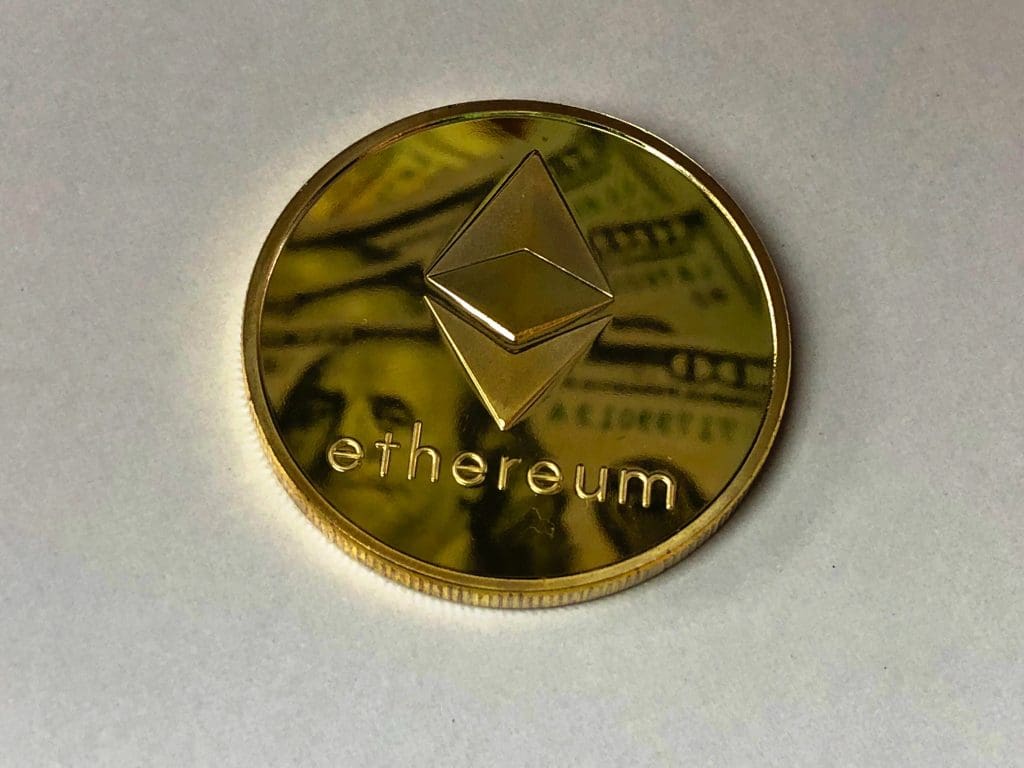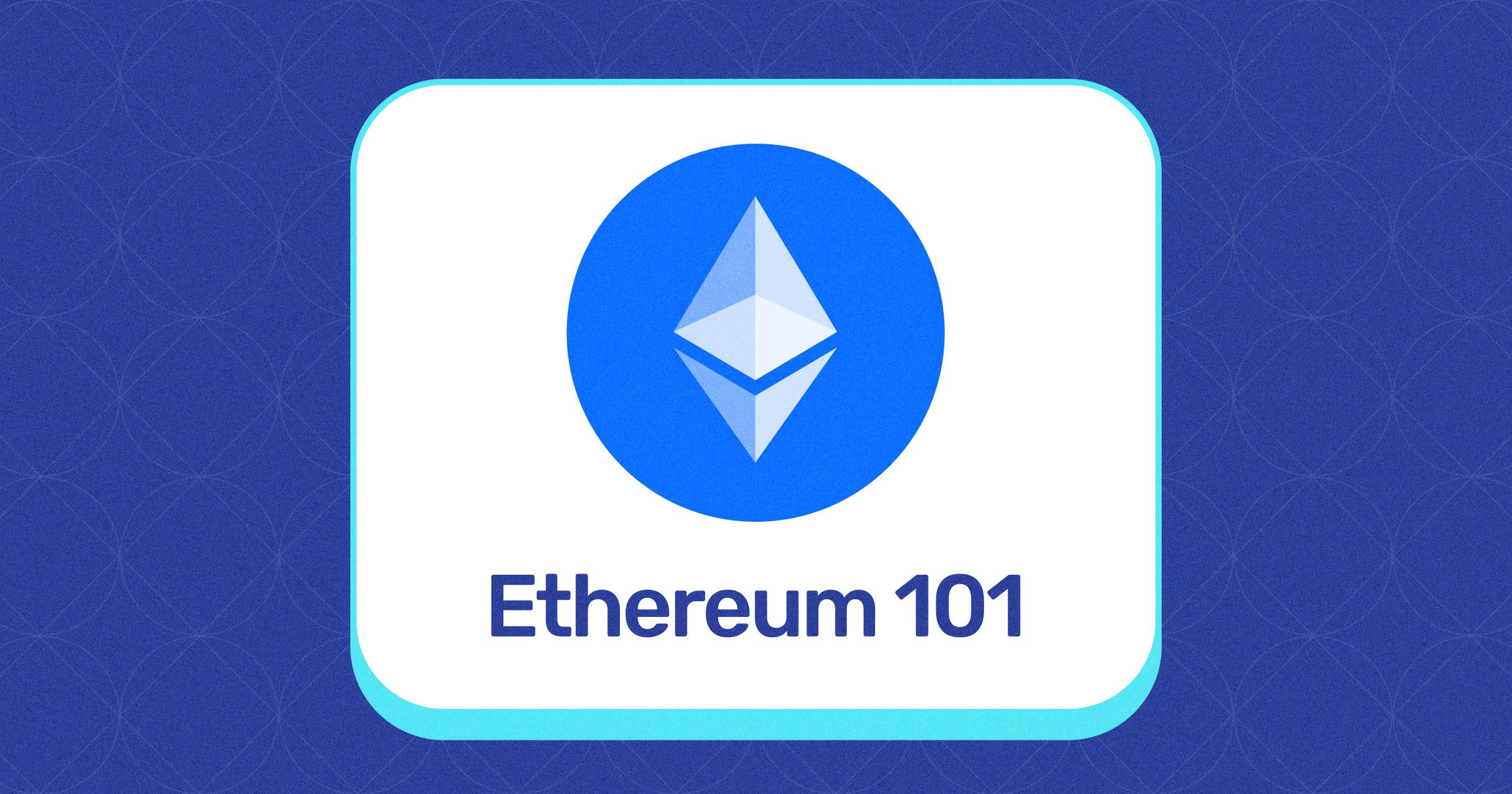Table of Contents
If you’re new to Ethereum, this article will provide you with a comprehensive understanding of what it is and how it works, using simple language suitable for beginners.
What is Ethereum?
Ethereum is a decentralized platform that enables developers to build and deploy decentralized applications (DApps). Like Bitcoin, Ethereum uses blockchain technology, but its primary focus is not on digital currency; it’s a platform for creating smart contracts and decentralised software.
How Does Ethereum Work?
At its core, Ethereum operates on a blockchain, just like Bitcoin. However, Ethereum’s blockchain is more versatile and programmable. It allows developers to write and deploy smart contracts – self-executing agreements with the contract terms directly written into code.
About Ether (ETH) – Ethereum’s Native Cryptocurrency
Ether, often referred to as ETH, is Ethereum’s native cryptocurrency. It is used to pay for transaction fees and computational services on the network. While it’s not meant to be a traditional currency, ETH can be bought, sold, and traded on cryptocurrency exchanges.
About Ethereum Transactions
Similar to Bitcoin, Ethereum transactions involve sending digital value. However, Ethereum transactions can be more complex due to the execution of smart contracts. These transactions require a certain amount of ETH as gas to pay for computation and storage on the network.
About Ethereum Gas Fees
Gas fees on the Ethereum network represent the cost of using computational resources when sending transactions or executing smart contracts. They serve to allocate resources efficiently, prevent network abuse, incentivise miners, and prioritise transactions.
Users set a gas limit for their transactions, which is the maximum resource consumption, and a gas price, which determines the transaction’s priority. The gas fee is calculated as the gas limit multiplied by the gas price.
Gas fees can vary based on network demand, and users should adjust them accordingly to ensure the timely processing of their transactions.
About Ethereum Wallets

To use Ethereum and store your ETH, you’ll need an Ethereum wallet. These wallets come in various forms:
- Software Wallets: Apps or programs that you can install on your computer or mobile device.
- Hardware Wallets: Physical devices designed to keep your Ethereum safe offline.
- Paper Wallets: A physical document containing your Ethereum address and private key (keep it secure!).
Your wallet is essential for managing your Ether and interacting with decentralised applications.
Buying and Storing Ether
Getting Ether is easy. You can buy it from online cryptocurrency exchanges. These websites let you trade your regular money (like naira, dollars or euros) for Ether. You can also buy from P2P crypto trading platforms, where you give another person something in exchange for Ethereum. That ‘something’ can be regular money, PayPal, or another cryptocurrency.
Once you’ve acquired Ether, store it safely in your wallet. Hardware wallets are considered the most secure option for long-term storage.
If you are a newbie with not so much Ether, software wallets are fine, but be sure to activate 2FA and use a reliable crypto platform.
Selling and Cashing Out Ethereum
Selling Ethereum is easy, especially with a platform like Prestmit. Prestmit is a platform that allows users to sell Ethereum and other cryptocurrencies in an OTC fashion. Here’s a detailed explanation of selling crypto on Prestmit.
Ethereum as a Smart Contract Platform
Ethereum is a leading smart contract platform that enables the creation and execution of self-executing agreements called smart contracts. It operates on a decentralized network, allowing developers to build decentralized applications (DApps) for various use cases.
Ethereum’s Turing-complete programming language, transparency, and trustless environment make it a versatile platform. Users pay gas fees to execute smart contracts, and ongoing upgrades aim to improve scalability and efficiency. Ethereum has a vibrant development ecosystem and has been utilised in decentralised finance, NFTs, supply chain management, and more.
About Ethereum Mining and Consensus
Ethereum, like Bitcoin, uses a consensus mechanism called Proof of Stake (PoS). This system requires participants (called validators) to lock up a certain amount of Ether as collateral to validate transactions and create new blocks. This replaces the energy-intensive Proof of Work (PoW) mining used by Bitcoin.
What are some of Ethereum’s Use Cases?
Ethereum’s versatile nature has led to various use cases, including:
- Decentralized Finance (DeFi): Creating financial services like lending, borrowing, and trading without traditional banks.
- Non-Fungible Tokens (NFTs): Digital assets representing ownership of unique items or collectables.
- Supply Chain Management: Tracking the origin and journey of products using blockchain technology.
- Gaming: Developing decentralised games and virtual worlds with true ownership of in-game assets.
The Security and Risks Associated with Ethereum
While Ethereum is secure, it’s essential to stay cautious:
- Be aware of phishing attempts and scams.
- Keep your private keys safe and secure.
- Double-check smart contracts and DApps before interacting with them.
The Future of Ethereum
Ethereum is continuously evolving. Ethereum 2.0, a major upgrade, is underway, which aims to improve scalability, security, and energy efficiency. Ethereum’s role in the future of decentralised technology is incredibly promising.
Frequently Asked Questions (FAQs) About Ethereum
- What’s the difference between Ethereum and Bitcoin?
Ethereum is a platform for creating decentralized applications and smart contracts, while Bitcoin is primarily a digital currency.
- What are smart contracts?
Smart contracts are self-executing agreements with terms written in code. They automatically execute when conditions are met.
- How do I buy Ethereum (ETH)?
You can buy Ethereum on cryptocurrency exchanges using traditional money (fiat currency) or trade it for other cryptocurrencies.
- What is gas in Ethereum transactions?
Gas is the fee paid in Ether for executing operations on the Ethereum network, such as sending ETH or interacting with smart contracts.
- Is Ethereum secure?
Ethereum is considered secure, but users must exercise caution against potential scams and follow best practices for wallet security.
- Can I create my own DApp on Ethereum?
Yes, Ethereum allows developers to create decentralised applications (DApps) on its platform.
- What is Ethereum 2.0?
Ethereum 2.0 is a major upgrade aimed at improving the network’s scalability and transitioning to a Proof of Stake (PoS) consensus mechanism.
- Are Ethereum transactions reversible?
Ethereum transactions, like Bitcoin, are irreversible once confirmed on the blockchain.
- What are NFTs, and how do they relate to Ethereum?
Non-fungible tokens (NFTs) are unique digital assets, often created and traded on the Ethereum blockchain, representing ownership of items or collectables.
- How can I keep my Ether safe?
To keep your Ether safe, use a secure Ethereum wallet (hardware or software), safeguard your private keys, and be cautious about sharing personal information online.
With this information, you’re now equipped to dive into the world of Ethereum, explore decentralised applications, and understand its potential to transform various industries. Just remember to stay informed, practice good security habits, and enjoy the exciting journey ahead in the Ethereum ecosystem!
Last updated on August 12, 2025

